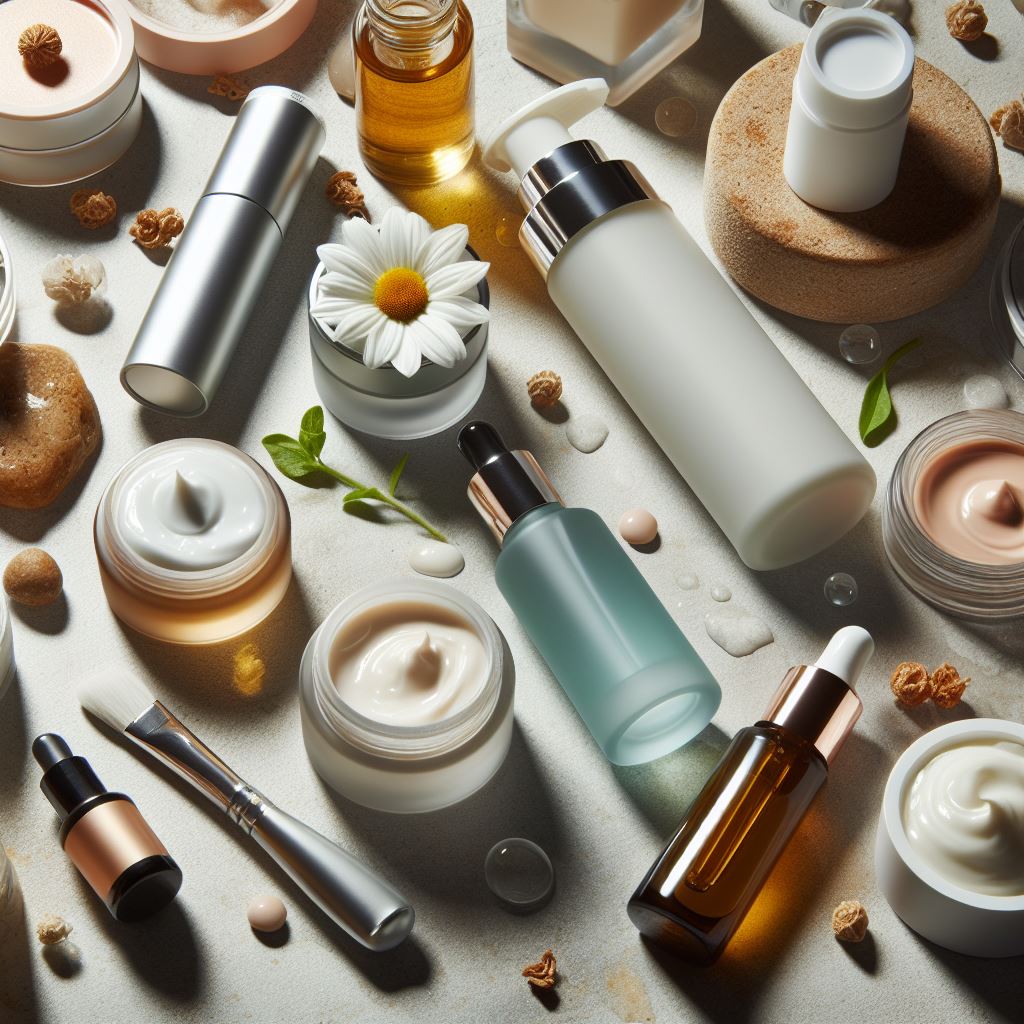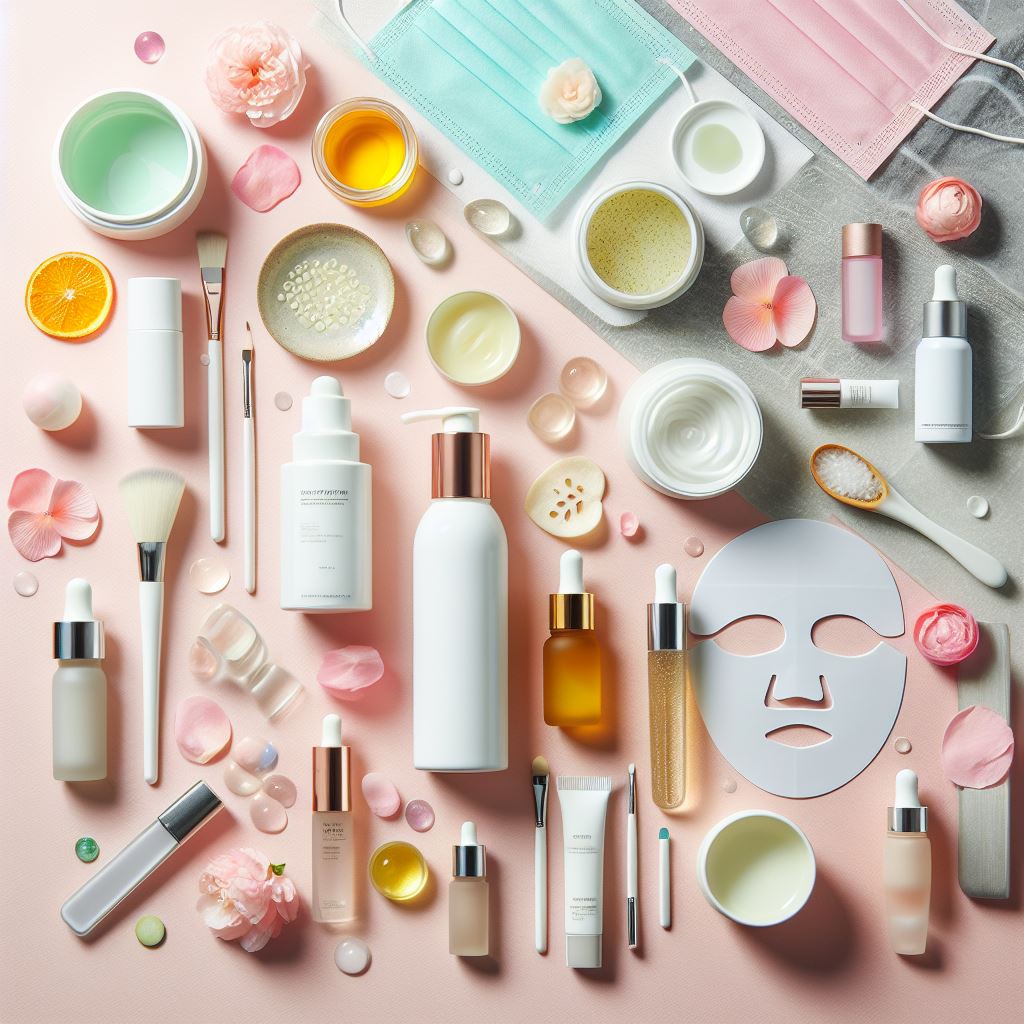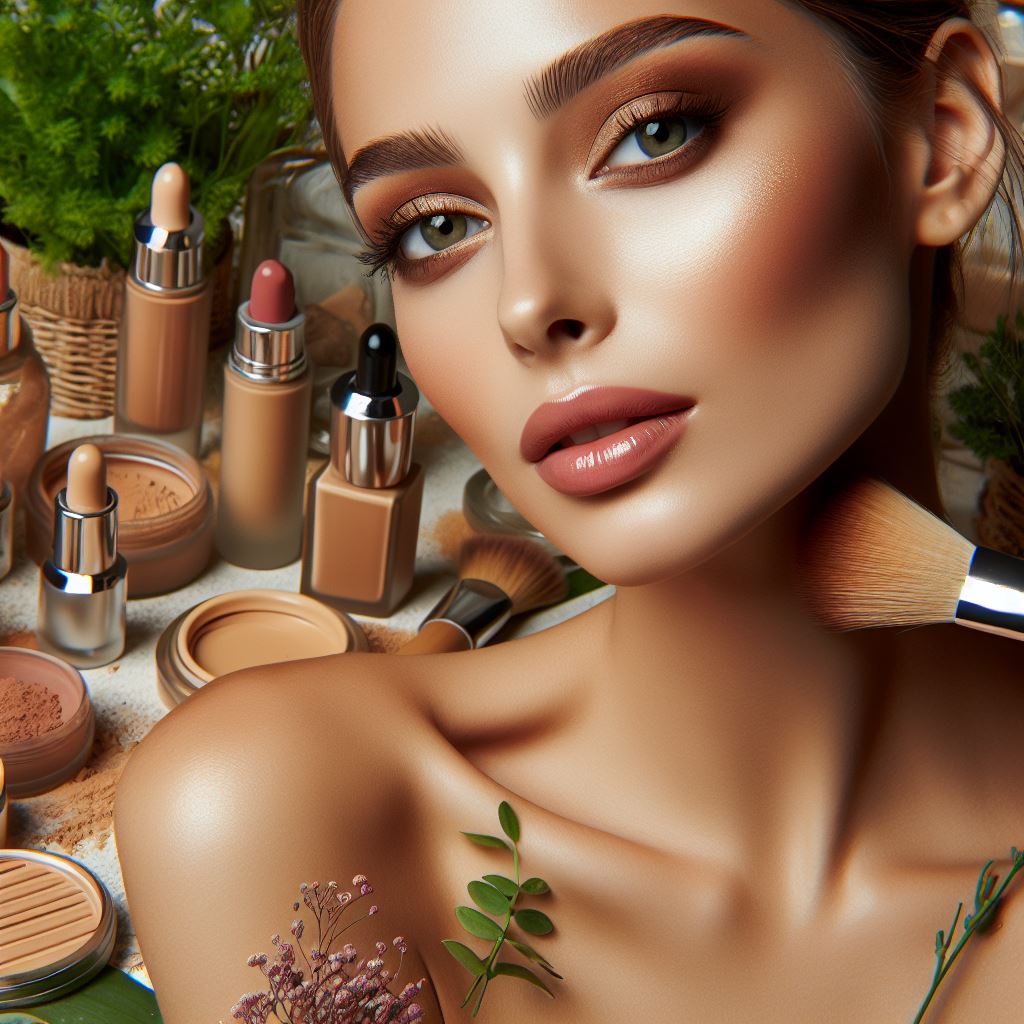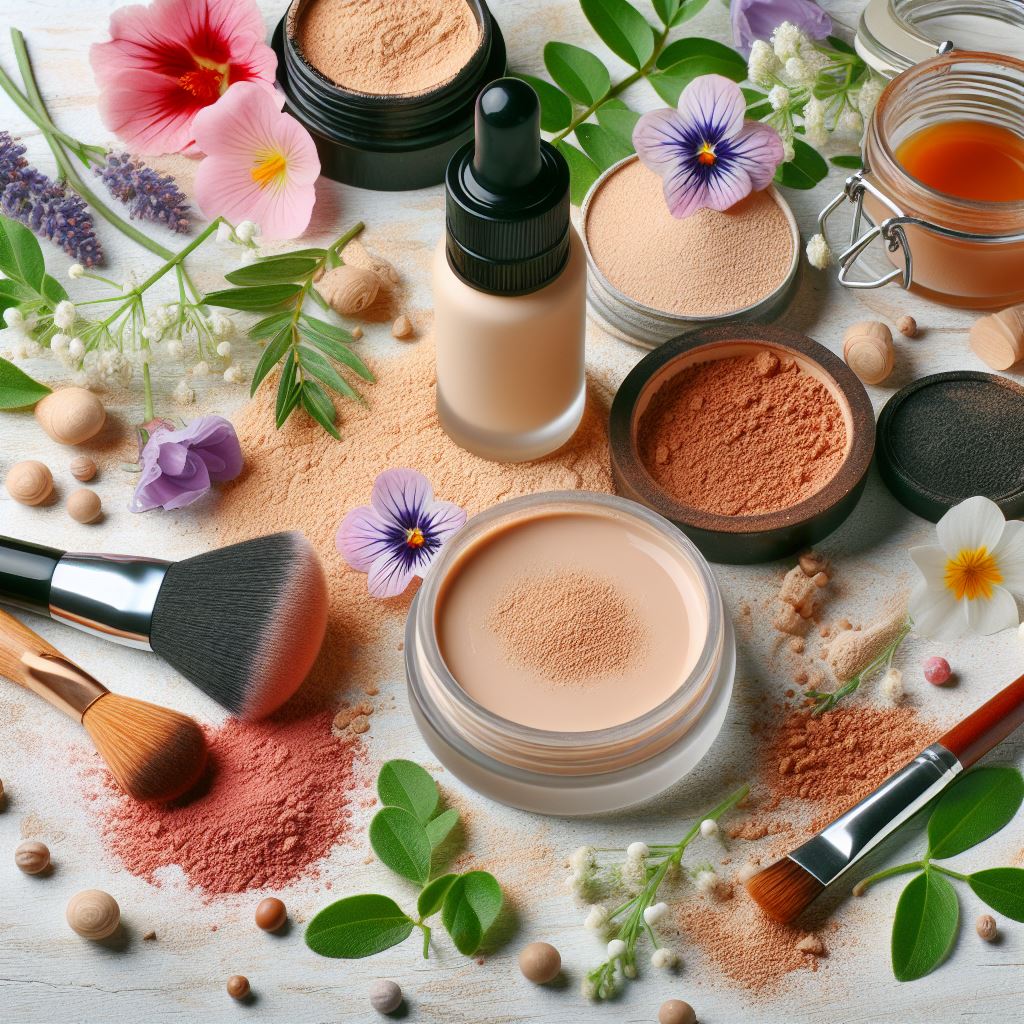Mineral Makeup: Can It Cause Lung Damage? Find Out Here!
Posted on May 31 2024

In recent years, *mineral makeup* has gained immense popularity as a healthier alternative to traditional cosmetic products. Unlike conventional makeup, which often contains synthetic chemicals and preservatives, mineral makeup is formulated with *natural minerals* and *organic ingredients*. This shift towards more natural products reflects a growing awareness of what we put on our skin and how it affects our overall health.
At Aneley Cosmetics, we pride ourselves on offering a range of mineral makeup that is not only made in the USA but also adheres to the highest standards of purity and safety. Our products are crafted with *healthy minerals* and *organic ingredients*, designed to enhance your natural beauty without compromising your skin's health.
Mineral makeup boasts several key benefits, including *anti-inflammatory properties* and a *non-clogging formula*, making it suitable for all skin types, especially sensitive and acne-prone skin. Additionally, our line is *PETA certified cruelty-free*, ensuring that no animals are harmed in the production process.
If you're ready to experience the benefits of mineral makeup firsthand, buy now for a game-changing experience!
What is Mineral Makeup Made Of

Mineral makeup sets itself apart through its use of *natural minerals* and *organic ingredients* that have been finely milled into powders. These ingredients are not only effective in providing coverage but also beneficial for the skin. Common components of mineral makeup include *titanium dioxide*, *zinc oxide*, *mica*, and *iron oxides*. Each of these minerals plays a specific role in the formulation.
- Titanium Dioxide: Known for its excellent coverage and natural sunscreen properties, this mineral helps to protect the skin from harmful UV rays.
- Zinc Oxide: Another mineral with natural sunscreen capabilities, zinc oxide also offers anti-inflammatory properties that can help soothe the skin.
- Mica: This mineral adds a natural shimmer and glow to the makeup, enhancing its ability to reflect light and create a radiant finish.
- Iron Oxides: These minerals are responsible for the pigmentation in mineral makeup, providing a wide range of colors to match various skin tones.
The absence of synthetic chemicals, parabens, and fragrances in mineral makeup makes it a preferable choice for those seeking a more natural beauty regimen. The formulation is designed to be *non-comedogenic*, meaning it won't clog pores, which helps to prevent breakouts and allows the skin to breathe. By incorporating these *healthy minerals* and *organic ingredients*, mineral makeup offers a harmonious blend of beauty and skincare.
Potential Risks of Inhalation

While mineral makeup is celebrated for its *natural ingredients* and *skin-friendly properties*, there has been growing concern about the potential risks associated with inhalation. The fine particles in mineral makeup can become airborne during application, especially when using loose powder formulations. This has raised questions about whether these particles can be harmful if inhaled.
Several studies have explored the potential risks of inhaling ingredients like *titanium dioxide* and *zinc oxide*. These minerals, when in a micronized or nano-particle form, can penetrate deep into the lungs and potentially cause respiratory issues. Although the risks are considered low, prolonged exposure and frequent inhalation could lead to complications such as:
- Respiratory Irritation: Inhaling fine particles can cause irritation in the respiratory tract, leading to symptoms like coughing, sneezing, and shortness of breath.
- Inflammation: Chronic inhalation may result in inflammation within the lungs, which can exacerbate existing respiratory conditions like asthma.
- Long-term Effects: Although research is still ongoing, there is some concern that long-term exposure could lead to more serious respiratory conditions.
It is important to note that these risks are generally associated with occupational exposure, where individuals are exposed to high concentrations of these particles over extended periods. For everyday users of mineral makeup, the risk is significantly lower but not entirely negligible. To mitigate these risks, it is advisable to apply mineral makeup in a well-ventilated area and consider using pressed powders instead of loose ones, as they are less likely to become airborne.
Scientific Studies on Mineral Makeup

The safety of mineral makeup has been the subject of various *scientific studies*, aiming to understand its effects on both skin health and respiratory health. These studies have provided valuable insights into the composition and potential risks associated with mineral makeup.
One notable study published in the *Journal of Cosmetic Dermatology* examined the impact of *titanium dioxide* and *zinc oxide*, two common ingredients in mineral makeup. The research found that when used in non-nano form, these minerals are generally safe for topical application and do not penetrate the skin barrier. However, concerns were raised about their potential for inhalation when in nano or micronized forms.
Another study conducted by the *National Institute for Occupational Safety and Health (NIOSH)* focused on the inhalation risks of fine particles, including those found in mineral makeup. The study concluded that while occasional, everyday use poses minimal risk, occupational exposure in poorly ventilated areas could lead to respiratory issues over time.
Moreover, a review published in the *International Journal of Toxicology* highlighted that many mineral makeup products contain *natural anti-inflammatory properties*. These properties can be beneficial for individuals with sensitive skin or conditions like rosacea and acne. The review also noted that mineral makeup is less likely to clog pores compared to traditional makeup, making it a preferable choice for those prone to breakouts.
Overall, scientific studies suggest that mineral makeup is a safe and effective option for most users when applied properly. However, it is essential to choose products from reputable brands that prioritize ingredient safety and to follow recommended application guidelines to minimize any potential risks.
Safety Tips for Using Mineral Makeup
While mineral makeup is generally considered safe, it is essential to follow certain *safety tips* to ensure you maximize its benefits while minimizing any potential risks. Here are some practical guidelines for using mineral makeup safely:
- Choose Non-Nano Formulations: Opt for mineral makeup that uses non-nano particles. Non-nano particles are too large to penetrate the skin and are less likely to be inhaled, reducing the risk of lung damage.
- Apply in a Well-Ventilated Area: When applying loose powder mineral makeup, do so in a well-ventilated space to minimize the inhalation of fine particles. Consider using a fan or opening a window to improve air circulation.
- Use a Gentle Application Technique: Use a soft, high-quality brush to apply mineral makeup. Tap off any excess powder before application to reduce airborne particles. Applying makeup in a gentle, patting motion can also help minimize particle dispersion.
- Seal the Makeup: After applying loose powder, use a setting spray or a light mist of water to help the makeup adhere to your skin. This step can reduce the amount of loose particles that can become airborne.
- Clean Your Tools Regularly: Wash your makeup brushes and applicators frequently to prevent the buildup of product and bacteria. Clean tools ensure a more even application and reduce the risk of skin irritation.
- Store Properly: Keep your mineral makeup in a cool, dry place and ensure lids are tightly closed to prevent contamination and maintain product integrity.
- Check Ingredients: Always read the ingredient list for potential allergens or irritants, especially if you have sensitive skin. Opt for products that are free from synthetic fragrances, dyes, and preservatives.
By following these safety tips, you can enjoy the many benefits of mineral makeup, such as its natural finish and skin-friendly properties, without compromising your health. Remember, choosing products from reputable brands like Aneley Cosmetics can further ensure that you are using safe and high-quality formulations.
Conclusion: Is Mineral Makeup Safe

In conclusion, mineral makeup is generally considered safe for most users, especially when choosing high-quality products from reputable brands like Aneley Cosmetics. The primary ingredients in mineral makeup, such as zinc oxide, titanium dioxide, and iron oxides, are known for their skin-friendly properties. These minerals provide natural sun protection, anti-inflammatory benefits, and a non-clogging formula that is ideal for various skin types.
However, it is essential to be mindful of potential risks, such as the inhalation of fine particles. By following the safety tips outlined in the previous sections, such as applying makeup in a well-ventilated area and using non-nano formulations, you can significantly reduce these risks. Regularly cleaning your brushes and properly storing your makeup can also help maintain product integrity and ensure a safe application.
Ultimately, the safety of mineral makeup largely depends on the formulation and application techniques. Brands like Aneley Cosmetics are committed to providing PETA certified cruelty-free, kosher for Passover approved, and Shabbat-friendly makeup options that prioritize your health and well-being.
Ready to experience the benefits of mineral makeup for yourself? Buy now for a game-changing experience!

0 comments